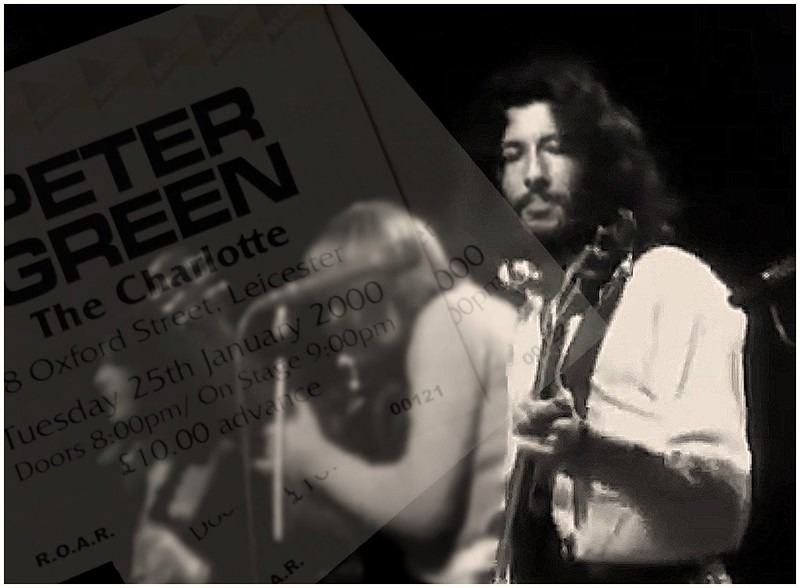Remembering Fleetwood Mac’s Peter Green: the enigma of British blues
“My biggest regret is that I never got to share the stage with him,” wrote Stevie Nicks on Saturday 25 July, following the news of Peter Green’s sudden death.
The former Fleetwood Mac guitarist and co-founder passed “peacefully in his sleep”, his family announced. The cause of his death was not stated.
Green’s passing has been met with an outpouring of grief and praise, from fans to fellow musicians. Green has been regarded as one of England’s greatest blues guitarists, who drew on a mystical and deeply melancholic melody with every strum, giving us hits like the No.1 single, ‘Albatross’, and the legendary ‘Black Magic Woman’.
But at the peak of his career, Green suffered a tragic LSD-related psychotic breakdown. He said he “went on a trip and never came back”, and left the band.
“I want to change my whole life, really, because I don’t want to be at all a part of the conditioned world, and as much as possible, I am getting out of it,” he announced.
Shortly after, he was diagnosed with schizophrenia and spent a large part of the 70s in and out of psychiatric wards.
Many of us have been asking the same question: who was Peter Green?
He wasn’t around to take in Fleetwood Mac’s newfound fame with the arrival of newcomers Stevie Nicks and Lindsey Buckingham, or the success of Rumors. Yet there is no denying that he was behind the greatness of the seventies superstars, and without him, we wouldn’t have Fleetwood Mac as we know it.
Despite being held in high regard, and his connection to one of the greatest bands of all time, his disappearance from the spotlight has turned him into one of the greatest mysteries within the world of music. And with the news of his sudden death and the legacy he has left behind, many of us have been asking the same question: who was Peter Green?
Born in London in 1946, Green was already a musical prodigy by the age of 15. In 1966, he replaced Eric Clapton as lead guitarist in John Mayall’s band, the Bluesbreakers. His inspired guitar playing mesmerised everyone, so much so that he was dubbed “The Green God” by those who knew him. Shortly after, in 1967, Green left the Bluesbreakers to form a band of his own alongside Mick Fleetwood, which would later become one of the most iconic music groups in history.
The early years of Fleetwood Mac mainly consisted of covers, but most of their originals were composed by Green. As his songwriting blossomed, the band began to move away from their blues roots into new musical territory. By 1969, Fleetwood Mac was signed to Warner Bros Records, and rose to prominence with hits like “Man of the World”, “Oh Well” and “Black Magic Woman”.
He was also the pioneer behind Britain’s distinctive blues tradition
But Green’s fall from grace meant his time in the band was short-lived. After taking large doses of LSD, his bandmates began to worry over changes in his state of mind. He began wearing robes and a crucifix, grew a beard and became obsessed with giving away all of his money. It is believed that he reached a breaking point after attending a party at a commune in Munich, and fell deeper into his mental decline. He left Fleetwood Mac in 1970.
His departure haunted the band, and his musical genius hung over the music group like a shadow. Mick Fleetwood once revealed that “I’d always get people up in the hotel room on tour and say, ‘Now I want you to hear Peter Green.’ I’d put on a record and I would always end up in tears.”
Although she never got the chance to share a stage with him, Nicks has always been enticed by Green. “I’ve cried myself to sleep many a night listening to early Fleetwood Mac and going, ‘What happened to this guy?’”. His mystical sound appealed to her, a theme she has wonderfully captured and made her own. Last year, the band celebrated their 50th anniversary, and she honoured him with her rendition of ‘Black Magic Woman’.
Green, along with artists like Eric Clapton and Jeff Beck, was at the vanguard of Britain’s highly influential blues movement. Even though he went missing in action, as mental illness forced him to abandon the limelight, he remains an enigmatic genius of British popular music. With his passing, we reflect on the legacy he has left behind. Not only was he the founder of one of the most successful and enduring music acts of our time, but he was also the pioneer behind Britain’s distinctive blues tradition.

Comments (1)